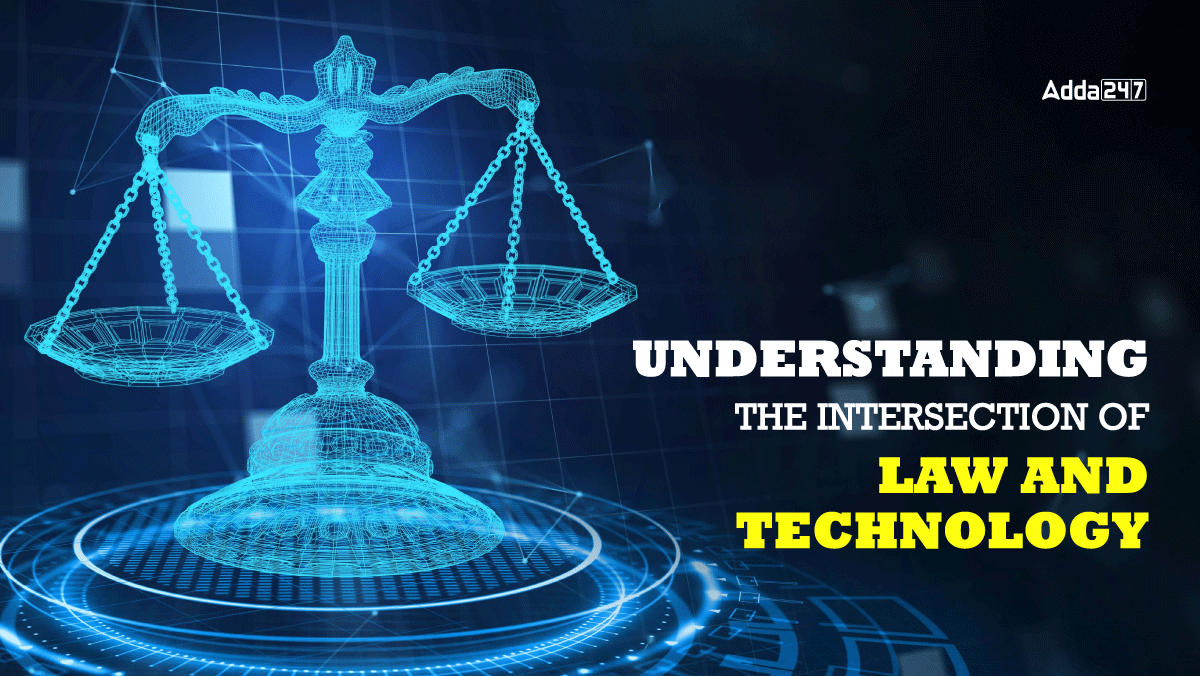Table of Contents
The rapid advancement of technology has profoundly impacted all facets of society, including the legal sphere. As we transition into the digital age, the intersection of law and technology has become increasingly complex, presenting both opportunities and challenges. Legal frameworks, which have traditionally evolved slowly, now face the task of keeping up with innovations like artificial intelligence (AI), blockchain, and data-driven economies. In this article, we explore key areas of concern within the Indian legal landscape, focusing on cybercrime, data privacy, e-contracts, AI’s influence, and significant case studies that illustrate these issues.
Cybercrime in India: Legal Frameworks and Challenges
The rise of cybercrime in India is an inevitable consequence of increasing digitization. To address these concerns, the Information Technology Act, 2000 (amended in 2008) serves as the primary legislation. It tackles crimes such as hacking, data breaches, identity theft, and more. A landmark case, Shreya Singhal v. Union of India (2015), led to the striking down of Section 66A of the Act, which criminalized offensive messages online. The Supreme Court deemed this provision unconstitutional, as it infringed on the right to freedom of speech and expression.
Despite legal measures, India still faces challenges in combating cybercrime. The rapid evolution of cyber threats requires continuous updates to both the legal frameworks and law enforcement capacities. Institutions like CERT-In (Indian Computer Emergency Response Team) have been established to manage cybersecurity incidents, but the rise of sophisticated cyberattacks demands stronger global cooperation and domestic enforcement.
Data Privacy in the Digital Age: Need for Stronger Legal Protections
Data privacy has become a critical issue in the digital age, where vast amounts of personal information are shared online. In the landmark Justice K.S. Puttaswamy (Retd.) v. Union of India (2017) case, the Supreme Court of India recognized privacy as a fundamental right under Article 21 of the Constitution, providing a Constitutional foundation for data protection.
Following this, India enacted the Digital Personal Data Protection Act, 2023, which aims to regulate the collection, storage, and processing of personal data. This legislation imposes obligations on data fiduciaries, ensuring that individuals’ privacy is respected. However, despite the introduction of the Data Protection Act, enforcement mechanisms remain weak, and the need for more robust rules and regulations to ensure the security of citizens’ personal data is increasingly evident.
E-Contracts: Validity and Enforceability in Indian Law
With the shift towards digital platforms, e-contracts have become a crucial component of modern commerce. Under Section 10 of the Indian Contract Act, 1872, contracts are legally binding if they meet the requirements of free consent and lawful consideration. The Information Technology Act, 2000, further validates e-signatures and digital contracts under Sections 4 and 5, making them enforceable.
However, the implementation of e-contracts in India raises questions about jurisdiction, consent, and enforceability, especially in cross-border agreements. Despite the legal recognition of e-contracts, challenges such as establishing authenticity and managing disputes require further refinement in Indian law to accommodate global digital commerce.
Transforming the Legal Landscape
Technological advancements have significantly transformed legal practices. The use of e-discovery tools, virtual hearings, and online dispute resolution (ODR) platforms during the COVID-19 pandemic demonstrated how technology could make the judicial process more accessible and efficient. Virtual Courts are now an integral part of the Indian legal system, highlighting the potential for increased digitization in legal proceedings.
While these technologies have improved efficiency, they have also exposed the digital divide, where rural populations or those without access to technology may face barriers to justice. Additionally, data security concerns remain paramount in ensuring the success of these innovations in legal practice.
AI and the Future of Law: Opportunities and Risks
Artificial intelligence (AI) presents both immense opportunities and significant risks for the legal field. AI is revolutionizing legal research, contract analysis, and document drafting, enhancing productivity. However, concerns about bias, transparency, and accountability loom large.
In criminal justice, AI-powered surveillance systems have sparked debates on their ethical use and potential for perpetuating biases. AI’s role in decision-making, particularly in critical sectors like healthcare, raises questions about liability for errors. While India’s National Strategy for Artificial Intelligence aims to foster the ethical use of AI, comprehensive legislation governing its application remains absent. AI in law thus requires careful regulation to ensure fairness and minimize risks.
Case Studies in Law and Technology
- Shreya Singhal v. Union of India (2015): This landmark case dealt with the Constitutionality of Section 66A of the IT Act, which criminalized offensive online messages. The Supreme Court struck down the provision, affirming that vague and overly broad restrictions on speech violated the right to freedom of expression under Article 19(1)(a).
- Justice K.S. Puttaswamy v. Union of India (2017): This case recognized privacy as a fundamental right under Article 21. It laid the foundation for data protection laws, including the Digital Personal Data Protection Act, 2023, signaling the need for stronger legal safeguards for personal information in the digital age.
- Uber and Competition Law: Uber’s pricing strategies came under scrutiny for alleged anti-competitive practices. The case raised issues about how traditional competition laws should adapt to tech-driven business models, sparking important discussions on market monopolization and consumer protection.
Conclusion
The intersection of law and technology is a dynamic and evolving field. As technology continues to reshape society, Indian law must keep pace to address challenges such as cybercrime, data privacy, e-contracts, and the ethical use of AI. The legal system must balance innovation with the protection of individual rights and societal interests. By strengthening legal frameworks and ensuring their effective implementation, India can embrace technological advancements while safeguarding the rights of its citizens in this digital age.



 TSPSC Group 1 Question Paper 2024, Downl...
TSPSC Group 1 Question Paper 2024, Downl...
 TSPSC Group 1 Answer key 2024 Out, Downl...
TSPSC Group 1 Answer key 2024 Out, Downl...
 UPSC Prelims 2024 Question Paper, Downlo...
UPSC Prelims 2024 Question Paper, Downlo...




